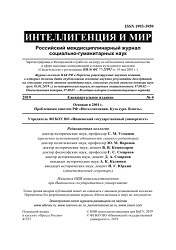Современные трансатлантические отношения в идеологии Республиканской партии США
Contemporary transatlantic relations in the ideology of US Republican Party
Author(s): Sergey Vladimirovich KislitsynSubject(s): Political Philosophy, Governance, Government/Political systems, International relations/trade, Security and defense
Published by: Ивановский государственный университет
Keywords: Republican Party; realism; neo-conservatism; NATO; US-European Relations;
Summary/Abstract: This article examines the contemporary ideological approaches of the US Republican Party to the issue of transatlantic relations. Republicans, as well as democrats, traditionally support the idea of Washington’s global primacy, but their strategies are different. The former primarily focus their attention on various power approaches, while the latter turn to economic instruments of influence. By identifying contemporary challenges directly with Russia’s foreign policy, republican ideologists are skeptical of Europeans not paying enough attention to security issues. Supporting the expansion and strengthening of NATO, the Republicans see it as the basis for American regional leadership. Today, they are inclined to identify modern challenges in the transatlantic space with the revitalization of Russian foreign policy. At the same time, their attitude to the problem of Britain's withdrawal from the European Union or to the cooling of US-German relations is not unambiguous. Republicans are in favor of maintaining close cooperation with both countries, considering the emerging difficulties in their relations with the US as a temporary phenomenon. At the same time, among the supporters of the party there is an understanding of the difference between Europe, united within NATO and the European Union. They focus their attention exactly on the North Atlantic Alliance, as an instrument of influence on their regional allies.
Journal: Интеллигенция и мир
- Issue Year: 2019
- Issue No: 4
- Page Range: 61-72
- Page Count: 12
- Language: Russian

